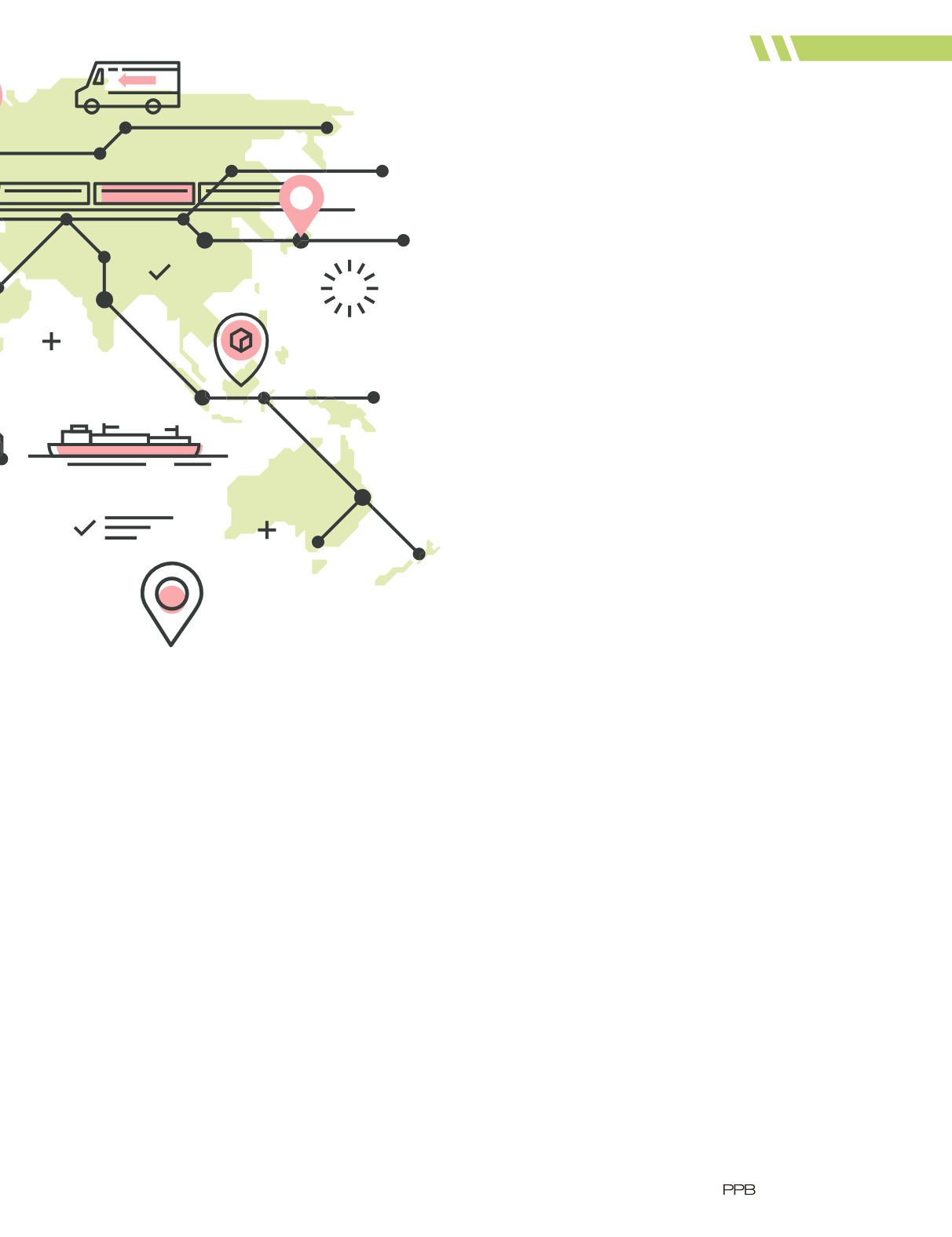

and assessments, the spotlight
on exploitation in the global
supply chain and the recent
introduction of The Modern
Slavery Act in the UK still occupy
many corporate agendas. They
demonstrate the need for an
approach that not only “
talks the
walk, but walks the talk.”
Tackling Diversity
And Inclusion
Multinationals such as Intel
that have embraced diversity
and inclusion now talk about
increased innovation and
creativity, new opportunities
and a velocity to market. As
part of this journey, they have
signed up for well-executed
strategies which they deployed
throughout their workforce
and supply chain. They have
gained competitive advantages
stemming from stronger
partnerships, collaborations
and market insights that
are caused by diversity in
thought and investments in
diverse enterprise. They drive
transformational change in their
total supply chain and in turn,
propel economic empowerment
in communities and sharpen
their own competitive edge to
realize growth in profits.
Working with a diverse and
inclusive supply chain allows
for increased innovation and
an opportunity to thrive in
the business. The different
backgrounds, experiences and
cultures all lead to a myriad
of perspectives which bring
a wealth of ideas to the table,
helping to build a better
solution. Likewise, diversity
in suppliers opens up new
routes to markets—for new
products, new technologies, new
customers and new suppliers.
The ability to give equal access to
purchasing opportunities across
all qualified diverse suppliers
empowers the organization
which embraces this approach.
Whether the suppliers are from
a minority group, a women-
owned business, those with
disabilities or from other diverse
groups, they should all be
part of the chain that provides
capabilities and innovations to
all organizations. Such suppliers
are agile. They are innovative
and they are also flexible. They
bring thought diversity to the
table, and increase values to the
companies that deal with them.
Focused global initiatives
such as the Stonewall Equality
Index (WEI) and WEConnect
International for certified
women-owned businesses are
all extending their reach as they
assist organizations to improve
their diversity and inclusion with
advice, guidance, best practices
and accredited programs.
Driving Change
Throughout The
Supply Chain
While supplier audits and
assessments are used throughout
purchasing to identify ability,
compliance and the use of
ethical and sustainable practices
and processes, the feeling in the
industry is that it is too easy to
create a climate of audit-fatigue,
even when using ethical and
sustainable audits. International
organizations such as SEDEX
(Supplier Ethical Data Exchange)
in part have reduced this audit-
fatigue, however the overload
on suppliers, with requests for
multiple audits and assessments,
has raised questions as to
whether audits are the best tools
to mitigate reputation, legal and
operational risks.
Many multinationals,
including Oxfam, have adopted
a more strategic approach,
helping to drive change through
various mechanisms. They
have developed long-term
relationships with their diverse
suppliers and together work to
identify areas where they can
eliminate risks and reduce the
impact and pressure on the
supply chain caused by late
orders, late payments and last
minute changes.
Ending Labor
Exploitation And
Unethical Practices
Other corporations have
moved beyond their internal
corporate purchasing programs
and audits to tackle global
labor exploitation. Although
international mechanisms, such
The global supply
chain does not
function in a
vacuum. By
making supply
chains ethical
and responsible,
businesses
consciously own
the management
of the economic,
environmental
and social
challenges they
encounter,
while exerting
purchasing
power to effect
positive change.
|
SEPTEMBER 2016
|
55
GROW
















